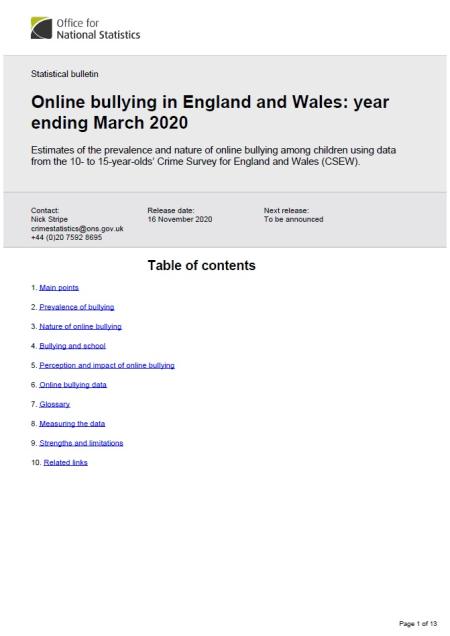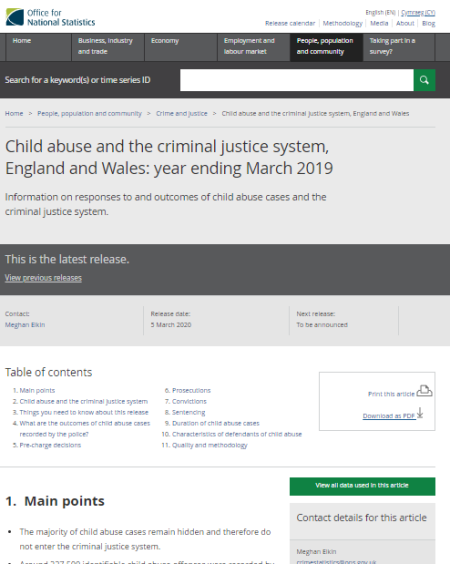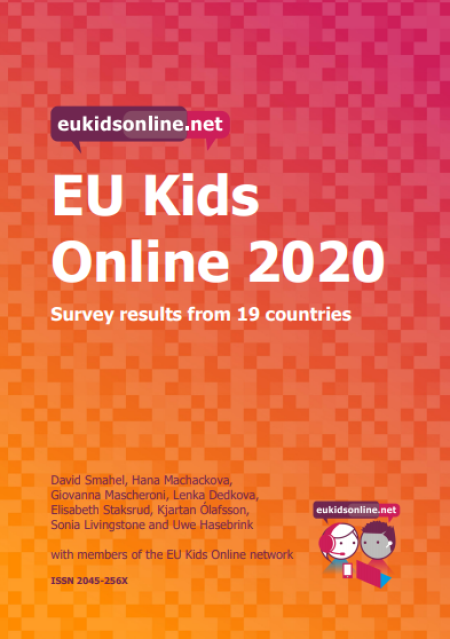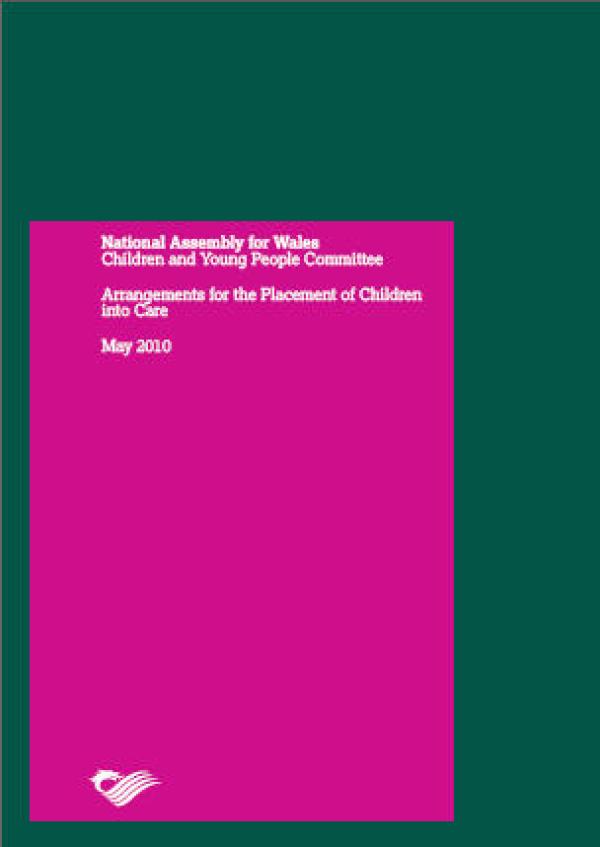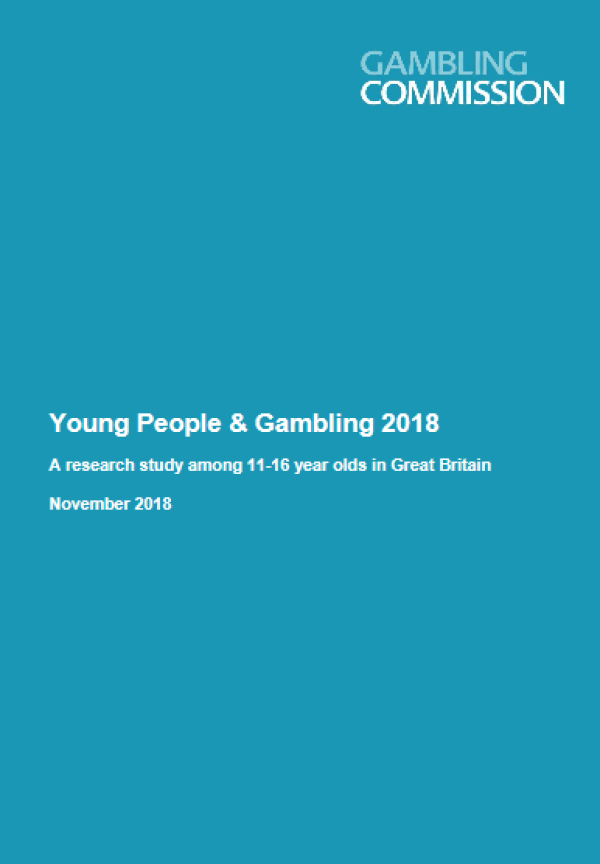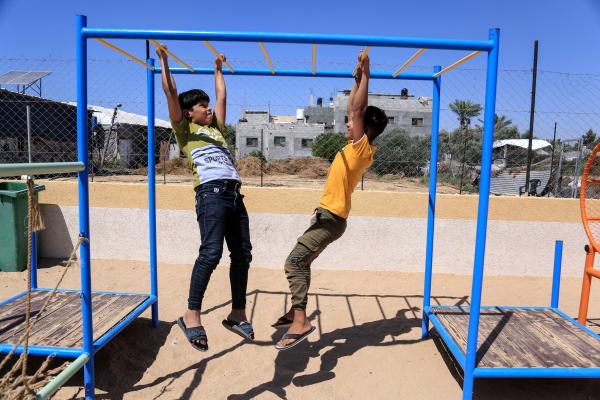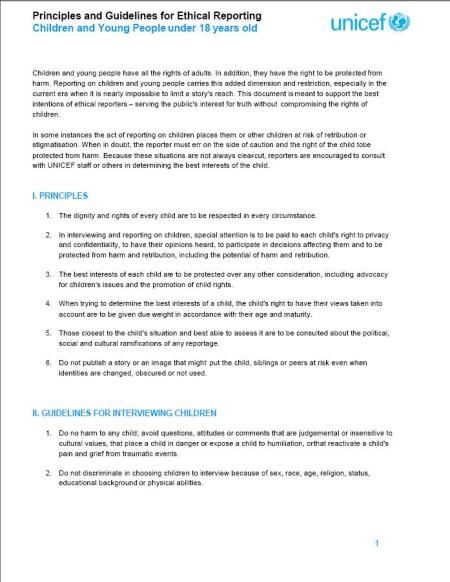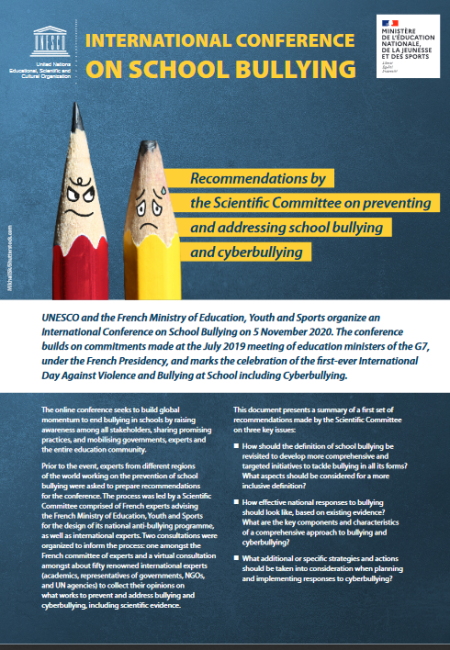
Bullying used to happen mostly in schools – now it can follow children anywhere they go. According to the Office for National Statistics’ latest report on online bullying based on a Crime Survey for England and Wales, around one in five children aged 10 to 15 years in England and Wales experienced online bullying behaviour last year.
Bullying is a kind of behaviour that hurts someone else physically or emotionally and it can happen anywhere - at school, at home or online. However, as there is no single definition, bullying can be perceived differently by individuals, which affects how likely children are to report on their experiences. Nevertheless, with greater use of smartphones and social media, greater attention should be paid on the effects of online bullying, as it can seriously impact on a child’s emotional well-being.
Although online bullying happens outside of school, it still has a central role in bullying being the place where children spend most of their time. 7 out of 10 (70%) children aged 10 to 15 years who experienced online bullying behaviour said this was by someone from their school.
In the survey, children were first asked to identify any mean things they had experienced from a list of behaviours commonly recognised as bullying. Later, they were separately asked whether or not they would describe their own experiences as "bullying".
Data shows 10% of all children aged 10 to 15 years experienced some of the two most common online bullying behaviour types, specifically being called names, sworn at or insulted and having rude messages about them sent to them. The majority of online bullying happens in private messages. As these messages are only experienced by the victim, they can more likely go unnoticed unless someone is told.
As the data used for this publication is from the period prior to the COVID-19 pandemic, the risk of online bullying at the present might be even higher than before with children's spending more time on the internet.
If you believe a child is in immediate danger, contact the police on 999 or 112. If the child is not in immediate danger but you are still concerned, or you or someone you know is experiencing bullying, you can contact:
- the NSPCC helpline on 0808 800 5000 or by emailing help@nspcc.org.uk
- Childline on 0800 1111
- your local child protection services


